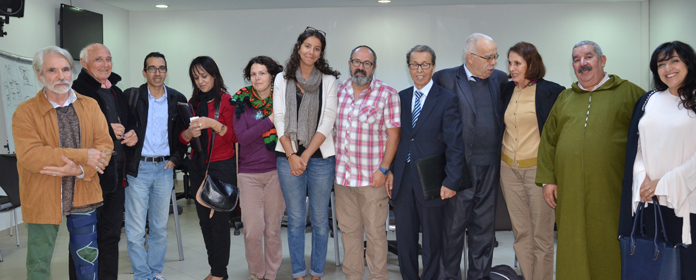Preserving the musical traditions of the Rif Mountains, a cultural heritage of mankind bequest
A roundtable in Morocco, co-organized by a researcher from Institute for Culture and Society, discussed the possibility of including the ayta jebliya on UNESCO's Intangible Cultural Heritage list.

PHOTO: Courtesy
In the north of Morocco stretches the Rif mountain range, a mountainous region of limestone and sandstone that is home to extensive forests. Throughout history, people from different cultures have converged there: Arabs, Berbers, inhabitants of the ancient Al-Andalus... From this mixture of traditions, a unique popular music subject emerged: the ayta jebliya.
How to preserve this cultural asset, bequest of humanity? Is it possible to include it as part of the Intangible Cultural Heritage of UNESCO? Several experts analyzed this question on the framework of a roundtable held in Rabat (Morocco). It was promoted by the research center and programs of study Interdisciplinary on Jbala (CERIJ) and by Sarali Gintsburg, Marie Curie researcher at the University of Rabat (ICS). Institute for Culture and Society (ICS) of the University of Navarra, at partnership with the Archives of Morocco.
The roundtable was chaired by Mohamed Mezzine, president of CERIJ, and revolved around two axes. The first was goal to better understand the importance of safeguarding the ayta jebliya. It began with the presentation of Sarali Gintsburg on the project that she develops at ICS, ORFOCREA, which starts from the oral tradition of Jbala to investigate the cognitive instructions of creativity in oral art.
Nabil Benabdeljalil, composer, musicologist and professor at the University of Hassan II (Casablanca), offered an insight into the complexity and richness of the instrumental component of this tradition and the possible difficulties of working with and documenting it. Likewise, Abdelouahed Edahbi, researcher independent and native of the Jbala region, emphasized the urgency of preserving this artistic tradition, which is at risk.
This first block concluded with a performance of ayta jebliya by Mohammed Masmoudi, a local musician and poet.
Zakariaa Tijani presented the second axis, which dealt with how the association Targa-AIDE succeeded in having the Middle Atlas dance, taskiwine (High Atlas), recognized as a UNESCO intangible heritage.
In the following discussions, the participants agreed to prepare a portfolio for UNESCO and promote further knowledge of this genre among the general public. In addition, a committee has been created to work on the portfolio and to research and document this musical tradition.
It is composed of Jacques Vignet-Zunz, Mohammed Mezzine, Noureddine El Harrak and Zakariaa Tijanim, for management assistant; and Sarali Gintsburg, Dr. Nabil Benabdeljalil and Abdelouahed Edahbi, for Documentation and research. This team will start the most active part of their project in July 2018, when the annual ayta jebliya Festival will take place in Taounate. There they will work with the participants of the event, both musicians and poets.




